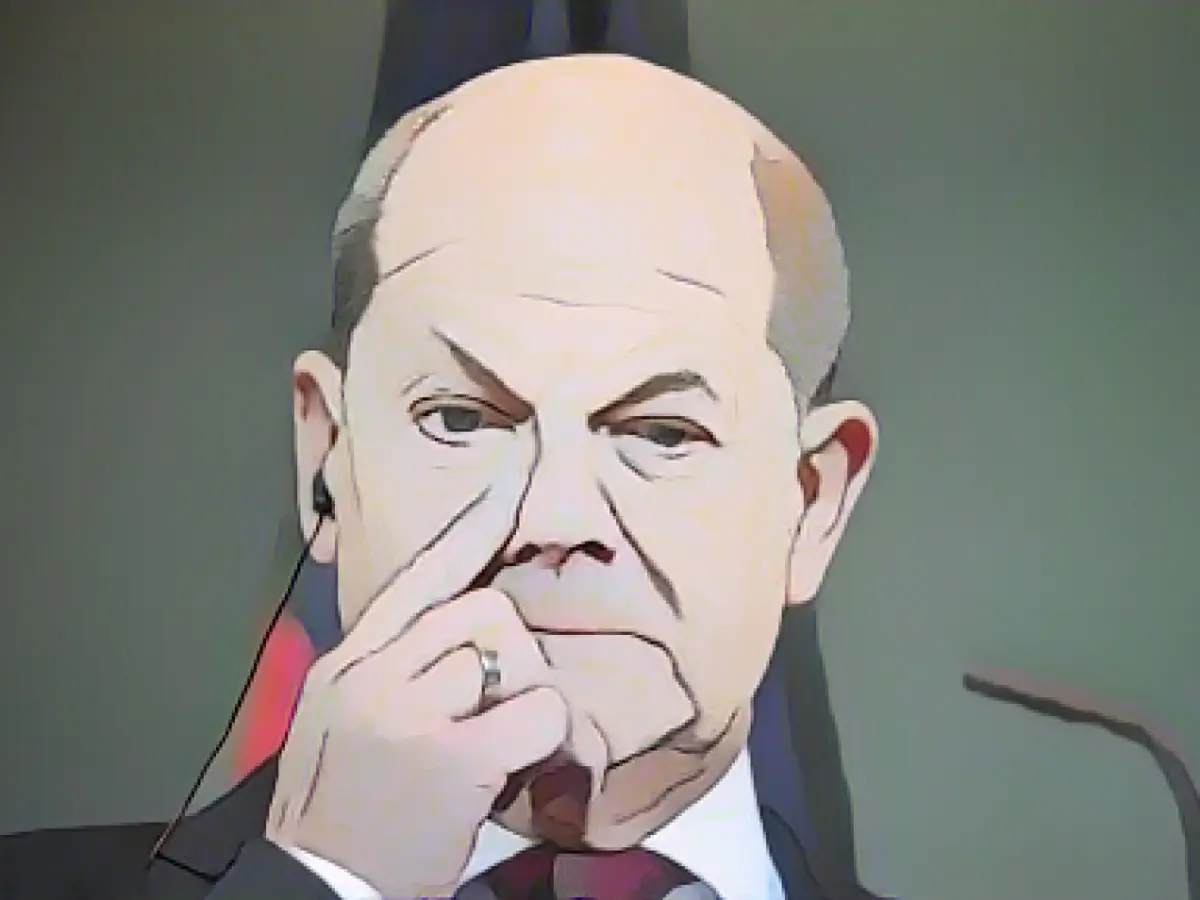Diplomacy - Germany and Brazil push for free trade agreement
Germany and Brazil are pushing for a swift conclusion of the planned free trade agreement between the European Union and the South American economic community Mercosur.
"We are strongly committed to ensuring that the agreement is now finalized quickly," said Scholz in Berlin after the German-Brazilian government consultations. Brazilian President Luiz Inácio Lula da Silva said that, despite all the difficulties, he would not give up on contributing to the success of the more than 20 years of negotiations. "I hope that the European Union will show that it is interested in concluding the treaty."
Clear differences on the Middle East conflict
At the first government meeting between the two countries in eight years, there were clear differences on security policy - particularly with regard to the war in Gaza and Ukraine. While Germany only advocates ceasefires between Israel and the Islamist Hamas in order to allow humanitarian aid, Brazil calls for an immediate and permanent ceasefire and even accuses Israel of "terrorist acts" with regard to the children and women killed in bombings in the Gaza Strip.
Objections from France to free trade agreement
The focus of the consultations, however, was on economic cooperation. Lula actually wanted to conclude the negotiations on the EU-Mercosur agreement, which is intended to create one of the largest free trade zones in the world with more than 700 million inhabitants, at a summit meeting of the South American community of states on Thursday. However, this is now more than questionable, mainly due to objections from France.
Talks between the EU and the four Mercosur states of Brazil, Argentina, Uruguay and Paraguay have been ongoing for well over 20 years. However, an agreement in principle from 2019 will not be implemented due to ongoing concerns - for example regarding rainforest protection.
Scholz calls for "the greatest possible pragmatism"
Scholz said that Brazil and Germany supported the agreement in order to exploit the enormous potential in trade and economic relations. "Brazil is our most important trading partner in South America," emphasized Scholz. "More than 1000 German-Brazilian companies make a significant contribution to this."
The Chancellor emphasized that it was necessary to conclude the negotiations now. "There is a lot to be said for improving relations between the European Union and Mercosur by concluding such a trade agreement." He was convinced that there would be a majority in the European Council and the European Parliament once the agreement had been negotiated. "I would ask everyone involved to be as pragmatic as possible and as willing to compromise as possible."
At the COP28 world climate conference in Dubai, French President Emmanuel Macron spoke out against the agreement. He said on Saturday that it did not take biodiversity and the climate into account. Lula therefore clearly sees the brakes on the European side.
Consultations now every two years
Several ministers from both sides took part in the meeting. There were nine on the German side and as many as twelve on the Brazilian side. The German government regularly arranges intergovernmental consultations with countries with which it has a particularly close partnership or which are of particularly great strategic importance to Germany.
The German and Brazilian cabinets met for the first time in Brasília in 2015 in order to broaden their relations. However, under the right-wing populist President Jair Bolsonaro, who earned himself the nickname "Tropical Trump", the consultations were put on ice for years. The idea was revived following Lula's return to the Brazilian presidency. Now the consultations are to take place every two years, alternating between Germany and Brazil.
Read also:
- Despite the clear differences on the Middle East conflict, particularly concerning the war in Gaza and Ukraine, Germany and Brazil remain committed to completing the free trade agreement between the EU and Mercosur.
- Brazilian President Luiz Inácio Lula da Silva expressed his hope that the EU will demonstrate its interest in concluding the free trade agreement, despite the ongoing challenges.
- Germany's Chancellor Olaf Scholz emphasized the need for the greatest possible pragmatism and willingness to compromise to finalize the negotiations for the free trade agreement between the EU and Mercosur.
- France's objections to the free trade agreement, primarily due to concerns about rainforest protection, have cast doubt on whether the negotiations will be concluded at the scheduled summit of the South American community of states.
- Olaf Scholz stressed the potential in trade and economic relations between Germany and Brazil, with more than 1000 German-Brazilian companies contributing significantly to this.
- Brazil, as Germany's most significant trading partner in South America, and Germany both support the free trade agreement to improve relations between the EU and Mercosur.
- French President Emmanuel Macron voiced concerns at the COP28 world climate conference in Dubai that the free trade agreement did not consider biodiversity and climate issues, adding to the challenges in concluding the negotiations.
- The German and Brazilian cabinets, following the tradition set in 2015, now plan to hold consultations every two years, alternating between Germany and Brazil.
- Under Jair Bolsonaro's right-wing populist presidency, the intergovernmental consultations between Germany and Brazil were halted, however, have been revived following Lula's return to the presidency.
- The Middle East conflict, particularly the situation in Gaza, has revealed substantial differences between Germany and Brazil's positions on security policy, with Brazil accusing Israel of terrorist acts and Germany advocating for ceasefires to allow humanitarian aid.
Source: www.stern.de








